Fragrance Of Yesteryears: Guru Dutt
This week's Fragrance Of Yesteryears features yet another of Indian cinema's brightest, but tragically short-lived stars: director, actor, and producer Guru Dutt.
Published: Friday,Jun 01, 2012 21:21 PM GMT-06:00
This week's Fragrance Of Yesteryears features yet another of Indian cinema's brightest, but tragically short-lived stars: director, actor, and producer Guru Dutt.
Vasanth
Kumar Shivashankar Padukone, better known as Guru Dutt, was born in
Bangalore on July 9, 1925. Soon
 after, his family moved from town to
town; he first lived in Madras, then Ahmedabad, and then Calcutta before
shifting permanently to Bombay.
after, his family moved from town to
town; he first lived in Madras, then Ahmedabad, and then Calcutta before
shifting permanently to Bombay.
At
the age of fifteen, during his stay in Bengal, he began to cultivate a
passion for dance and did all he could to break into the world of
cinema as a choreographer. He then tried his luck as an assistant
director and actor in supporting roles. He worked with the Prabhat Film
Company where he met superstar Dev Anand. With Dev Saab, he established an immediate friendship and mutual trust that opened the doors for his first cinematic venture. Dev
Anand, who was already well-established as an audience favorite, took
charge of launching his friend and even agreed to be the protagonist of
his debut behind the camera with the film Baazi (1951). This was followed in quick succession by Jaal (1952).
Having tasted instant success,
Guru Dutt had enough funds to open his own production company. He then
married Geeta Roy, the famous playback singer whose voice was the
highlight of several of his film's soundtracks. In
1953, he also wanted to take a chance at playing the protagonist in his
films, so he took to acting. He made an impact in front of the camera
with films like Baaz, Aar Paar, and especially in the romantic Mr. & Mrs. 55 - a bona fide hit which earned both audience and critical appreciation.
The
ingredients that set Dutt apart included his exquisite narrative
technique, rich visual quality, careful choice of soundtrack, and the
elements of mystery, philosophy, and ambiguity in his characters. These
qualities placed Guru Dutt's name alongside the likes of Raj Kapoor,
Bimal Roy and Mehboob Khan as the torchbearers of the golden age of
Indian cinema.
He discovered new talents such
as Johnny Walker, an gifted actor who effortlessly added a touch of
comedy in the most dramatic and poignant movies, the director and writer
Abrar Alvi, and the elegant beauty Waheeda Rehman with whom the media
assumed a romantic link with him for years.
Following his rapid ascent, he produced Pyaasa
in 1957. It was hailed as an absolute masterpiece and is still regarded
as one of the best films to have ever come out of the Indian
subcontinent. The film featured a
remarkable performance by Waheeda Rehman, along with Mala Sinha in a
proud and haughty character that served as a challenge which she met and
conquered with her talent.
His next venture, Kaagaz Ke Phool,
was another stroke of genius, though it was not regarded as such at the
time of its release. Full of autobiographical references, it was
conceived as a glimpse behind the scenes of the Indian film industry,
and it recounted his thwarted love affair on and off screen with actress
Waheeda Rehman. Though a brilliant film in every respect, it was
perhaps ahead of its times; Kaagaz Ke Phool failed to connect with viewers and turned out to be the most painful and unexpected failure of Dutt's career. Let
alone his career, the man's life itself did not remain the same after
this tale that he poured his heart and soul into was met with such
indifference. Demoralized and wounded, he began to retreat from the
limelight and resolved to no longer work as a director.
Away
from the camera, Guru Dutt continued to act only in films made by
others, even though some have suggested that behind the work of his
collaborator Abrar Alvi (including Sahib Bibi Aur Ghulam) was actually the hand of his influential mentor, Dutt.
An
unfortunate victim of alcohol, who was also given to unregulated use of
psychotropic drugs, Guru Dutt committed suicide in 1964. At the time,
he was scheduled to meet with Mr Raj Kapoor and actress Mala Sinha to
discuss the film Phir Bhi Bahren Aayengi, in which he was to act as the protagonist and also the producer.
*After his death, the role in Phir Bhi Bahren Aayengi went to a young but enterprising Dharmendra.
*Asha Bhosle has been the last person with whom Guru Dutt spoke to before dying.
*He is regarded as Indian's Orson Welles.
Though
he did not live long enough to register an impact through quantity, the
quality of his work both in front of and behind the camera is such that
his place in the history of Indian cinema will never be forgotten.
Editors: Lola K. & Jenifer Y.
Editors: Lola K. & Jenifer Y.
Your reaction
 Nice
Nice Awesome
Awesome Loved
Loved LOL
LOL OMG
OMG Cry
Cry Fail
Fail

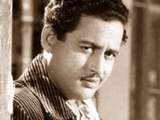
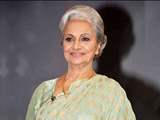





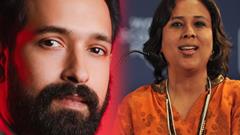





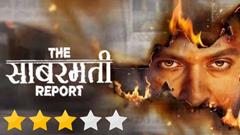


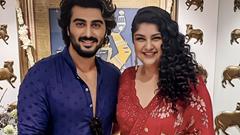
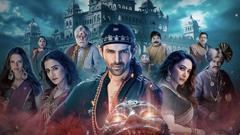
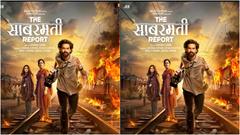

Comments (8)